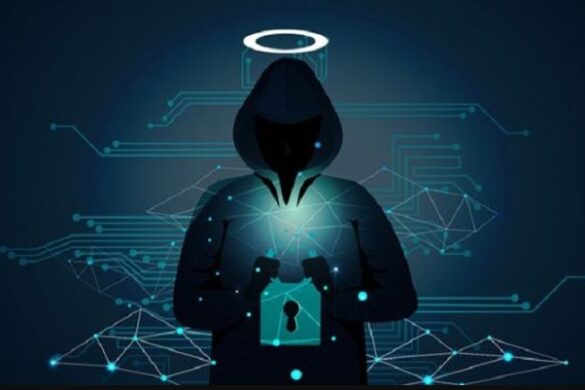Quick Navigation
hire a hacker services: what this search really means
When users search for hire a hacker services, they are rarely looking for entertainment or curiosity-driven information.
Instead, they are attempting to evaluate whether these services are real, effective, or legally acceptable.
The intent behind this query is primarily informational. Users want to understand whether such services exist in a legitimate form, how they operate, and what risks are involved. In most cases, the search reflects uncertainty rather than malicious intent.
This section clarifies the meaning behind the query before addressing feasibility or legality.
Why this phrase appears so frequently online
Several recurring situations explain why this search term continues to gain traction.
Digital access concerns
Some users believe their accounts, devices, or data may have been accessed without authorization.
Relationship or trust issues
Others suspect hidden digital activity and seek technical certainty instead of personal confrontation.
Lost or restricted access
Account lockouts or security restrictions often lead users to assume external intervention is required.
Although the motivations differ, they all rely on the same assumption: that private systems can be accessed discreetly through third-party services.
The gap between perception and reality
What users want is clarity or confirmation.
What the phrase suggests is covert access.
Understanding this disconnect is essential to evaluating the truth behind these services.
How modern digital systems are protected
Before assessing service claims, it is necessary to understand how modern systems are secured.
Layered security architecture
Most digital platforms rely on multiple layers of protection rather than a single access point.
Authentication controls
Passwords, multi-factor authentication, and device verification work together to prevent unauthorized entry.
Encryption mechanisms
Sensitive data is encrypted both at rest and in transit.
Access monitoring
Unusual behavior triggers alerts, restrictions, or verification steps.
Because of these layers, external access without detection is extremely limited.
Why private access is difficult to conceal
Modern systems are designed to detect anomalies.
-
New device registrations are logged
-
Location changes may trigger verification
-
Session behavior is monitored
As a result, persistent hidden access is not a realistic expectation.
Legal boundaries surrounding hacking services
Even when technical challenges are ignored, legal limitations remain decisive.
Unauthorized access laws
In most jurisdictions, accessing systems without permission is illegal.
Computer misuse statutes
These laws prohibit unauthorized access regardless of intent or outcome.
Privacy protection regulations
Reading or intercepting private communications may violate data protection laws.
Cross-border enforcement
Digital actions often involve multiple legal systems, increasing liability.
Personal motivation does not create legal exceptions.
Consent as the determining factor
Consent defines legality.
-
Accessing your own systems through approved methods is lawful
-
Accessing another person’s systems without permission is not
Even informal agreements are often insufficient without clear authorization.
Professional constraints in cybersecurity
Legitimate professionals operate under contracts, scope definitions, and written consent.
Any service offering covert access without authorization operates outside legal and ethical standards.
Common promises made by hire-a-hacker platforms
Despite legal restrictions, many online platforms advertise hacking services.
Typical marketing claims
These services often present similar promises.
Guaranteed outcomes
Claims of certain success are frequently emphasized.
Rapid timelines
Short completion windows are commonly advertised.
Total secrecy
They assure clients that targets will never detect access.
Each of these claims conflicts with documented system behavior.
Structural flaws in these offers
Several red flags appear consistently.
Technical contradictions
Guaranteed access ignores encryption, authentication, and monitoring realities.
Lack of transparency
Service providers rarely disclose identities or credentials.
Payment risks
Irreversible payment methods are common, with no accountability.
Many users report financial loss without receiving any service.
Secondary risks for users
Engaging with these platforms introduces additional threats.
-
Exposure to fraud
-
Potential blackmail
-
Malware installation on the requester’s own systems
In many cases, users become the primary target.
What users are actually trying to achieve
Understanding the real problem helps identify safer alternatives.
Clarifying account security
Some users simply want to confirm whether their accounts are safe.
Reviewing account security fundamentals often provides immediate answers without risk.
Regaining legitimate access
Others are locked out due to forgotten credentials or device changes.
Official recovery tools are designed specifically for these scenarios.
Resolving trust-related uncertainty
In emotionally driven cases, technical surveillance rarely resolves underlying concerns.
Non-technical solutions often address the root issue more effectively.
Legitimate cybersecurity services vs illegal offerings
Not all cybersecurity services are fraudulent. However, distinctions matter.
What legitimate services actually do
Authorized professionals focus on prevention and assessment.
Security audits
Evaluations identify weaknesses in systems owned by the client.
Penetration testing
Testing is conducted with written permission and defined scope.
Risk assessment
Professionals analyze exposure without accessing private third-party data.
These services operate transparently and legally.
What illegal services claim to do
Unauthorized services claim covert access to third-party systems.
This distinction defines legality and credibility.
Understanding ethical boundaries in cybersecurity helps separate legitimate work from illicit claims.
Real-world observations from professional contexts
In many observed cases, individuals seeking these services were not seeking data theft.
They were seeking reassurance during stressful situations.
Once informed about legal risks of unauthorized access, most reconsidered their approach.
Education consistently reduced demand for unsafe services.
Platform policies and enforcement mechanisms
Digital platforms enforce strict rules.
Enforcement actions
Violations may trigger several responses.
Account suspension
Unauthorized behavior can lead to permanent loss of access.
Device blocking
Devices associated with suspicious activity may be restricted.
Evidence preservation
Logs may be retained for compliance or investigations.
These consequences apply regardless of user intent.
Why platforms enforce uniformly
Exceptions would undermine system trust.
For this reason, private access services are not supported outside formal legal processes.
Understanding the persistence of these services
Despite risks, these services continue to appear.
Psychological factors
Stress, suspicion, and uncertainty drive demand more than technical reasoning.
Information gaps
Many users lack clear explanations of security models.
Understanding messaging platform security models reduces susceptibility to misleading claims.
Legal complexity
Users often underestimate enforcement and jurisdictional reach.
Clear explanations of digital privacy laws help close this gap.
Reference concepts for deeper understanding
A foundational explanation of end-to-end encryption is often enough to dispel most misconceptions about hidden access.
Frequently Asked Questions
Is it legal to use hire a hacker services?
In most jurisdictions, unauthorized access services are illegal.
Can these services really access private accounts?
Claims usually conflict with modern security systems.
What risks do users face when contacting such services?
Financial loss, fraud, and personal data exposure are common risks.
Are there legitimate alternatives to these services?
Yes. Official recovery tools and authorized security assessments exist.





